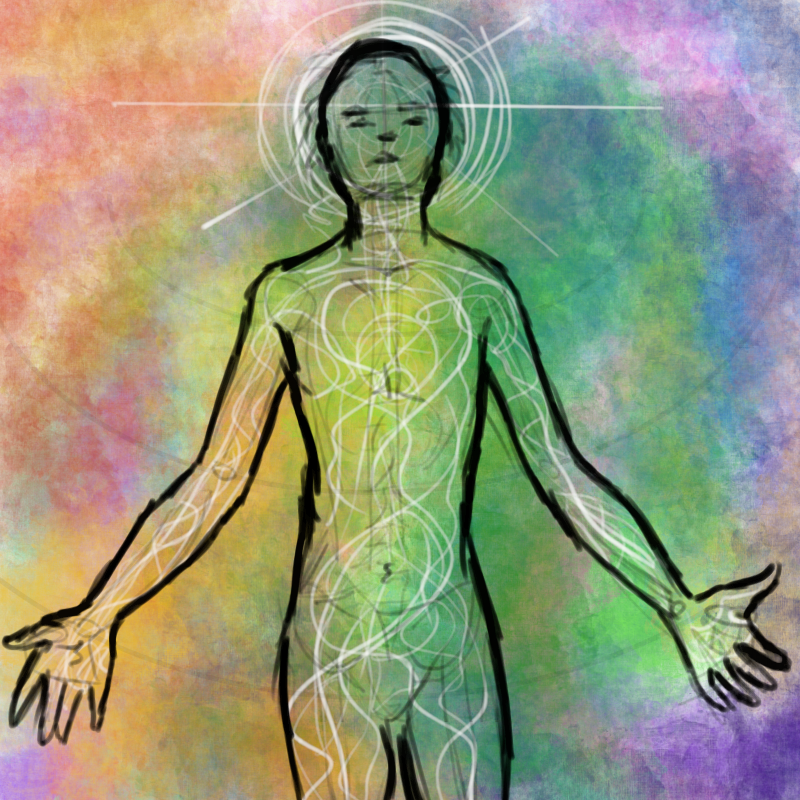Books by Ian Rogers





The idea of a human soul is central to most religions but it is under attack by many materialistic scientists, particularly based on structural and chemical studies of the brain. If our behaviour, our emotions and our very thoughts can be explained by nerve pathways and various chemical neurotransmitters, why is there any need for a soul? Some psychologists argue that consciousness itself is an illusion, an irrelevant by-product of all the brain’s programming and computing.
Science fiction writers, on the other hand, speculate that ’artificial intelligence’ may develop into ’machine self-awareness’. Would this mean that machines had developed souls? Surely unlikely. What both the psychologists and the science fiction writers are trying to tell us is this: WE are just biological machines. There is no ‘soul’ and no wider, unseen, spiritual side of existence. No ‘spirit’ persists after the physical body dies.
There are three main reasons for the non-soul view of existence.
The brain is the seat of consciousness and damage to the brain, or drugs, can alter the degree of consciousness, perceptions and even personality. What happens to the soul if a pleasant, amiable, honest person changes into a miserable, vicious dishonest person?
If this is due to a disease like a brain tumour, rather than self-induced harm like alcoholism, what happens to the state of their soul? Does it change from a ‘good’ soul to a ‘bad’ soul? We Christians should ask ourselves on what basis we might criticise bad actions, and how God could judge them, if they were predetermined by structural or chemical problems. Much easier to dodge the problem by saying there is no soul in the first place.
In historical times, identical twins were thought of as ‘magically produced’ - a gift or a curse from the gods. Now we know that they arise from a single fertilised egg. As it divides into two and then four and so on, at some point the pre-embryo falls apart but each half embryo continues to develop, giving rise to two genetically identical human beings.
If they are two bio-machines, there is no problem - but if humans have a spirit, at what point does it enter the two embryos? Some would say the spirit is given by God at the moment of fertilisation, in which case the two twins would share one spirit. This seems unlikely, particularly if only one twin were to be ‘saved by faith’. What would happen to the unsaved twin? Given that each twin has an independent mind, it would also seem they should have a soul each. In Christian terms, each would need to individually their own Christian commitment to faith. No one can do this for another. This brings us back to the question: when does the soul enter the body? As the brain develops; or at implantation or at some other moment up to time of birth? I don’t know the answer but, once again, it is much easier to avoid the question and say there is no soul in the first place.
It used to be assumed that only humans had souls; that souls give us a moral side that animals lack. We are self-aware, have a conscience and can decide between right and wrong. These ideas are challenged by modern animal research. For example, the chimpanzee ‘Chloe’ was raised as a human infant and taught sign language. When shown a mirror and asked ‘Who is that?’ she replied ‘Me, Chloe’, allegedly showing some self-awareness (unlike, for example, cats, who will look behind the mirror for the ‘other cat’). There is some evidence that higher mammals have some form of guilt beyond mere training and appeasement behaviour. The most extreme animal rights campaigners in the USA tried to get chimpanzees awarded the same legal rights as five-year-old children!
If animals have souls, at what point in the animal hierarchy does soul-ownership occur. Should we eat only fish and lower animals, or should we all become vegetarians? In his book ‘Supernature’ Lyall Watson presented evidence that plants are sentient, feeling beings. That is unfortunate if correct. It would mean we ought all to starve!
Souled Out part 2 will examine some general counter arguments as well as referring to Biblical revelation.
<< Next Archive Previous >>